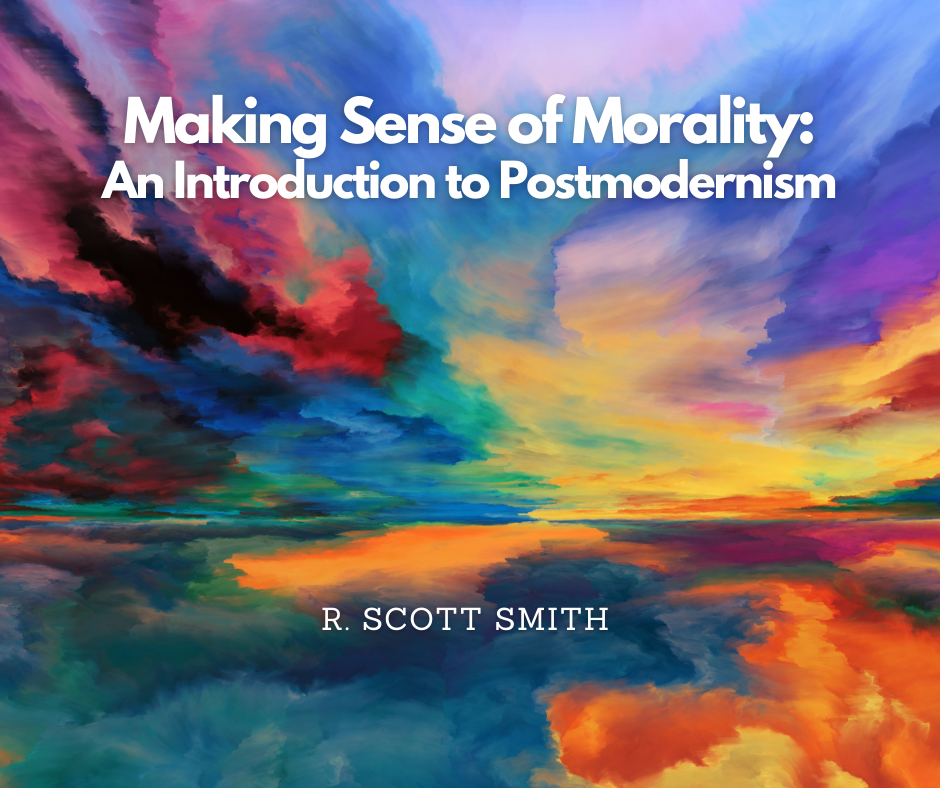Making Sense of Morality: Hobbes
/Editor’s note: R. Scott Smith has graciously allowed us to republish his series, “Making Sense of Morality.” You can find the original post here.
Introduction
As key thinker behind the shifts in the Scientific Revolution, Thomas Hobbes embraced mechanical atomism and nominalism. A major focus on empirical knowledge also ensued. Not only was his book, Leviathan (1651), shaped by these factors, he also was influenced by the English civil war between Charles I and Parliament.
Hobbes’s Ethics
For Hobbes, humans are just material beings. Fittingly, he thought external objects caused motions in us, and these motions included things like desires and aversions, thoughts, beliefs, and more. An external object causes a motion in us toward it. Such a motion is a desire for something, which he claimed is good. Similarly, aversions were caused by external objects, but they caused motions away from them, which he said were bad.
He also defined the good in terms of self-interest (ethical egoism), which we ought to pursue. Further, we do in fact act in our self-interest (psychological egoism). But, self-interest is not necessarily identical with pleasure.
Hobbes posited that we have a restless desire for power. If people desire the same object, there is conflict. If everyone pursues his or her self-interest, there will be a persistent fear of violence, which he called a state of war.
Now, unlike the views we just surveyed, on materialism, there are no transcendent, objectively real morals. So, acts are not wrong until a humanly-made law forbids it. To preserve a peoples’ safety, they need to form a social contract with a sovereign ruler, or Leviathan, to keep the peace and defend their rights which he would promulgate. The Leviathan would exercise all functions (executive, legislative, and judicial) of government. While this could be a tyrant, Hobbes thought that the sovereign’s body is composed of the people he rules. Since he too would act egoistically, he would act in the peoples’ best interests.
Only the Leviathan gives rights; there are no natural rights, except the right of nature (to preserve one’s own life). Nor would any other rights be inalienable, for they are given by government. While Hobbes spoke of “natural laws,” they were not objectively real, immaterial laws that we could know by reason. Rather, they were maxims for our lives.
By way of assessment, there are several issues with his ethics. First, there is no room for moral reformers. Whatever the sovereign decrees is law and therefore moral, unless of course he violates peoples’ own right of nature.
Second, Hobbes doesn’t seem to anticipate any problem with material beings making choices, like ceding their rights and forming a social contract. Nor does he see an issue with making rational decisions. Yet, if we are but mechanisms, and even our desires (or aversions), let alone other “mental” states, are caused by the motions external, material objects produce in us, then it seems there is no room for free will. How then can we be ethically responsible for our actions? Likewise, how can we make rational choices to believe the truth?
Third, can his views preserve our core morals: murder and rape are wrong, and justice and love are good? I don’t think so. In a completely material world, things can be exhausted descriptively. But while careful descriptions of the various factors involved in ethical decision-making is important, ethics involves what we ought, or ought not, do or be. Ethics is a normative discipline, but Hobbes’s materialism seems unable to account for that.
Finally, consider what is good (or bad) in terms of Hobbesian motions. Murder’s or rape’s wrongness would be based on the motions an object (presumably the intended victim) caused in the perpetrator. According to Hobbes, something morally wrong would be a motion away from something. But that is not what happens in acts of murder or rape; the perpetrator moves toward the victim, which, on Hobbes’s view, would be good. Moreover, it seems the victim is the one to be blamed, for that person caused the motions in the perpetrator! Further, justice is more than motions; both a just and an unjust act could involve motions toward someone, or something. So, tellingly, it seems Hobbes’s theory cannot preserve our core morals.
For Further Reading
Hobbes, Leviathan
R. Scott Smith, In Search of Moral Knowledge, ch. 4




















